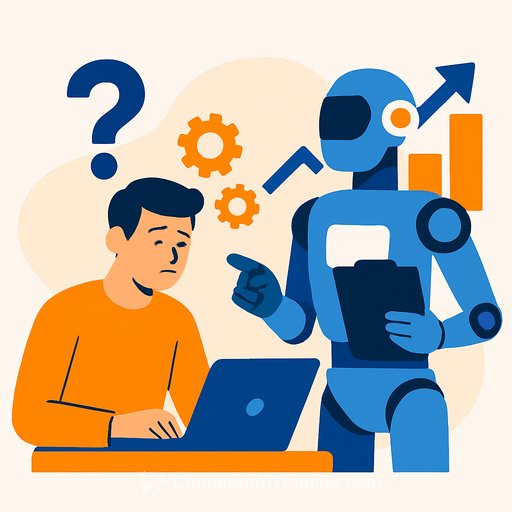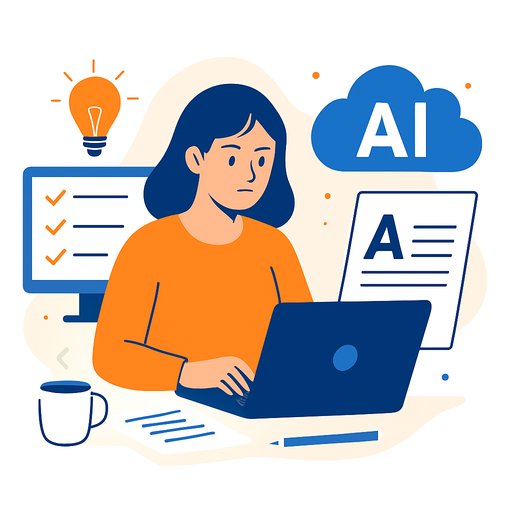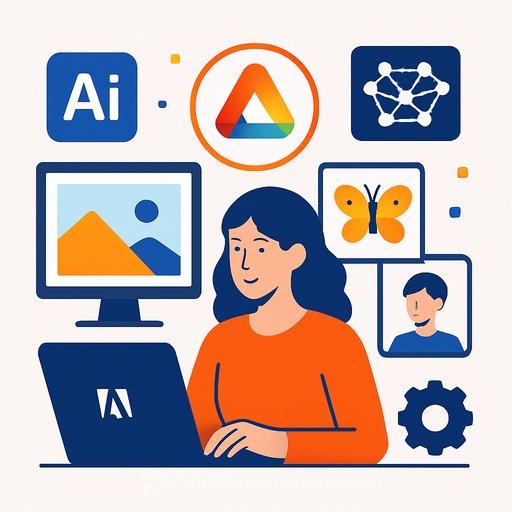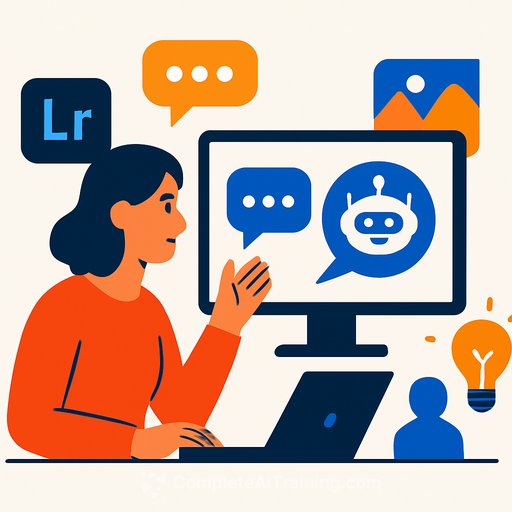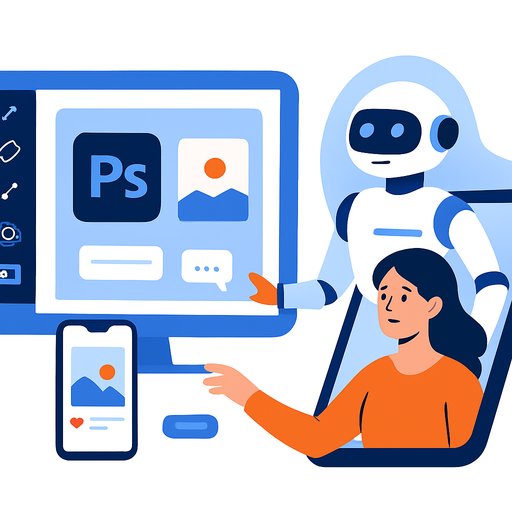Can AI Bring More Good Than Harm to the Future of Creative Jobs? Here's What the Data Says
Artificial intelligence is increasingly becoming part of the workplace, promising boosts in productivity. For creatives, the presence of AI is both a challenge and an opportunity.
Adapting in a Changing Landscape
Max Hamilton, a graphic designer with over 20 years of experience, faced the growing presence of generative AI by shifting her focus to illustration work for children's books.
"I saw that happening a few years ago and that's when I pivoted," she explained. "I've been really focusing on using watercolour and hand drawing because I thought that might set me apart from the computer-generated look."
To stay competitive, Max also developed writing skills to be involved in all stages of book production. "As a creative, I think we like to think that our creativity is our special weapon," she said.
How AI Affects Creative Jobs
Data from Jobs and Skills Australia (JSA) confirms AI will change the labour market by automating some tasks while augmenting others. AI is less about replacing entire jobs and more about changing specific skills within those jobs.
Dr. Evan Shellshear from The University of Queensland explains: "It's not jobs that are at risk of AI, it's actual tasks and skills. Certain skills and parts of jobs are disappearing, but whole occupations are not necessarily vanishing."
For creatives, this means AI tools can handle repetitive or technical tasks, while human creativity and judgment remain essential.
AI as a Productivity Booster
Generative AI technologies tend to support workers by improving productivity, especially in high-skilled roles. Dr. Shellshear notes AI is creating new possibilities that were previously out of reach, particularly for small businesses.
"Gen AI can lower the cost for things, expertise and knowledge that were out of reach in the past," he says.
Creating the Unthinkable
Melanie Fisher, a Canberra-based food industry professional, explored AI tools soon after ChatGPT’s release. Despite initial inaccuracies, she experimented with AI to generate recipes and ideas, eventually using it to create a game app for her young granddaughter.
Without prior IT experience, she instructed ChatGPT to help develop a story-mode game based on adventures she and her granddaughter imagined. The app took three weeks to build and remains a special project between them.
Melanie sees AI as a double-edged sword: "I think it's a great leap forward for people, but I do very much worry it's going to massively displace lots of people from work."
Early Days of AI Integration
Many professionals, including recruiters and health practitioners, have already incorporated AI into daily tasks. However, corporate layoffs linked to AI, like those at Commonwealth Bank Australia, may not fully reflect the technology’s impact.
Professor Nicholas Davis from University of Technology Sydney warns of a disconnect between expectations and reality. Organisations often anticipate job cuts that don’t materialize as AI tools don’t always deliver predicted efficiencies immediately.
He points to past examples, such as self-checkout machines in supermarkets, which initially raised customer frustration and theft, leading some stores to bring back staffed counters.
"Humans are still needed alongside AI for it to perform sustainably and reliably," says Professor Davis.
Preparing for an AI-Driven Future
Melanie’s experience shows that while AI tools can enable new projects, becoming an expert requires education and real-world experience.
Dr. Shellshear advises focusing on skills that AI struggles to replicate, such as communication, management, creativity, and empathy. A diverse skill set offers protection against automation.
"The more you're able to add value, the less it matters that things get taken away," he says. "If your job is narrowly focused, then there's where it gets problematic."
His advice for creatives: recognise AI’s impact and ask yourself how to keep adding value with these tools. Integrating AI into your workflow is key to staying relevant and efficient.
Final Thoughts for Creatives
AI is changing how creative tasks are done but not replacing the human spark that drives originality. By adapting skill sets and embracing AI as a tool, creatives can expand their possibilities rather than limit them.
For those interested in learning practical AI skills that complement creative work, exploring targeted courses can be beneficial. Resources like Complete AI Training’s courses by job offer tailored options to build expertise.
Your membership also unlocks:

